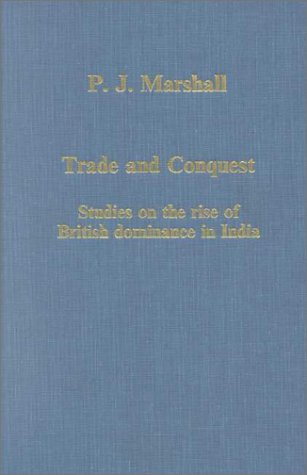Variorum Collected Studies
2 total works
CS 409
During the 18th century, the British presence in India changed dramatically. Trading enclaves in the coast conquered major provinces and, for the first time, large sections of the Indian population came under British rule. The essays in this volume focus on the great transformation and offer interpretations of it. They explore the link between commercial expansion and military conquest, between the policies of the East India Company and the personal interests of its servants, and between the Englishmen and the Indians who did business with them or offered their services as administrators. Bengal was the first great prize of British territorial expansion, and Bengal and Calcutta featue prominently in this collection.
The present collection brings together a series of studies by Peter Marshall on British imperial expansion in the later 18th century. Some essays focus on the thirteen North American colonies, the West Indies, and British contact with China; those dealing specifically with India have appeared in the author's 'Trade and Conquest: Studies on the rise of British domination in India'. The majority, culminating in the four addresses on 'Britain and the World in the Eighteenth Century' delivered as President of the Royal Historical Society, deal with the processes and dynamics of empire-building and aim to bring together the history of Asia and the Atlantic. The themes investigated include the pressures that induced Britain to pursue new imperial strategies from the mid-18th century, Britain's contrasting fortunes in India and North America, and the way in which the British adjusted their conceptions of empire from one based on freedom and the domination of the seas, to one which involved the exercise of autocratic rule over millions of people and great expanses of territory.

